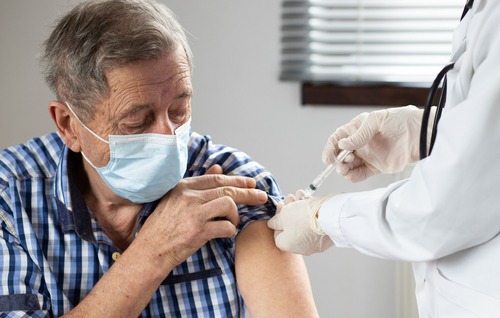
The U.S. Food and Drug Administration (FDA) and the Centers for Disease Control and Prevention (CDC) last week authorized the use of third COVID-19 vaccine doses from Pfizer Inc. and Moderna Inc. for patients with compromised immune systems.
The decision follows months of build-up surrounding the possible necessity of booster versions for existing vaccines and considers emerging data that suggests some people with moderately to severely compromised immune systems do not always build the same level of immunity compared to people who are not immunocompromised.
First, the FDA amended its emergency use authorization for both vaccines to include an extra dose of the same shot initially received for patients with weakened immune systems. Then, a CDC advisory panel voted to recommend the additional shots — a decision agreed to by CDC Director Rochelle Walensky.
“In small studies, fully vaccinated immunocompromised people have accounted for a large proportion of hospitalized breakthrough cases (40-44 percent). Immunocompromised people who are infected with SARS CoV-2 are also more likely to transmit the virus to household contacts,” Walensky said. “While people who are immunocompromised make up about 3 percent of the U.S. adult population, they are especially vulnerable to COVID-19 because they are more at risk of serious, prolonged illness.”
Moderately to severely immunocompromised individuals can receive the shots immediately as a result, after an initial two-dose vaccine series. CDC extended the recommendation for those with various conditions, including organ or stem cell transplants, advanced or untreated HIV infection, active cancer treatments, taking medications that weaken the immune system, and more. Any such shots should be administered at least four weeks after completing the initial COVID-19 vaccine series.
The Infectious Disease Society of America (IDSA) backed the move, stating that it would provide greater protection for those at risk of serious COVID-19 illness and disease. While the organization noted that data on the use of such a dose is limited, sufficient data exists to support its use among specific patient populations. However, any such use should be paired with additional research to identify optimal vaccination strategies.
“As COVID-19 case counts, hospital utilization rates, and deaths once again increase due to the highly contagious Delta variant, infectious diseases experts urge everyone who is eligible to get vaccinated,” Dr. Daniel McQuillen, president-elect of IDSA, said. “Vaccines remain the best tool in the fight against COVID-19. Increasing the percentage of the population that has received at least one dose is also a critical strategy to protect those who are immunocompromised and children under the age of 12. Improving global vaccine equity and access is also critically important to end the COVID-19 pandemic.”
The revised authorization will notably only apply to those 18 years old or older. For Moderna, it also follows a double-blind, randomized controlled trial of 120 participants who had undergone organ transplant procedures and were consequently given a third dose of the company’s COVID-19 vaccine. Among these, the median percent virus neutralization reached 71 percent for those given the vaccine instead of 13 percent for those given a placebo.
“We recognize the need to protect immunocompromised individuals who are at the highest risk of severe COVID-19 disease,” Stéphane Bancel, CEO of Moderna, said. “It is promising to see recent studies demonstrating that a third dose of the Moderna COVID-19 vaccine may enhance immune response in immunocompromised populations. We will continue to generate data on protection against SARS-CoV-2 variants, and we remain committed to helping to end the COVID-19 pandemic with our mRNA vaccine.”

